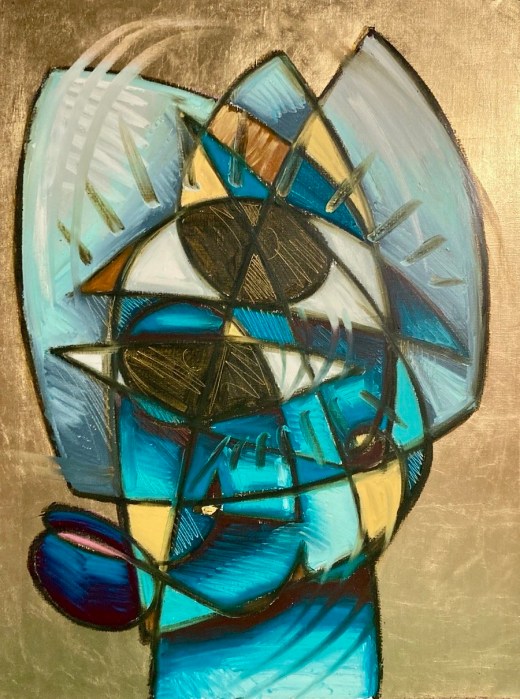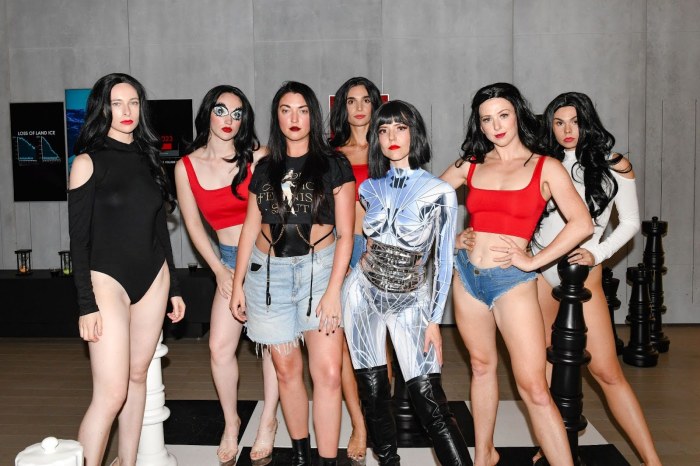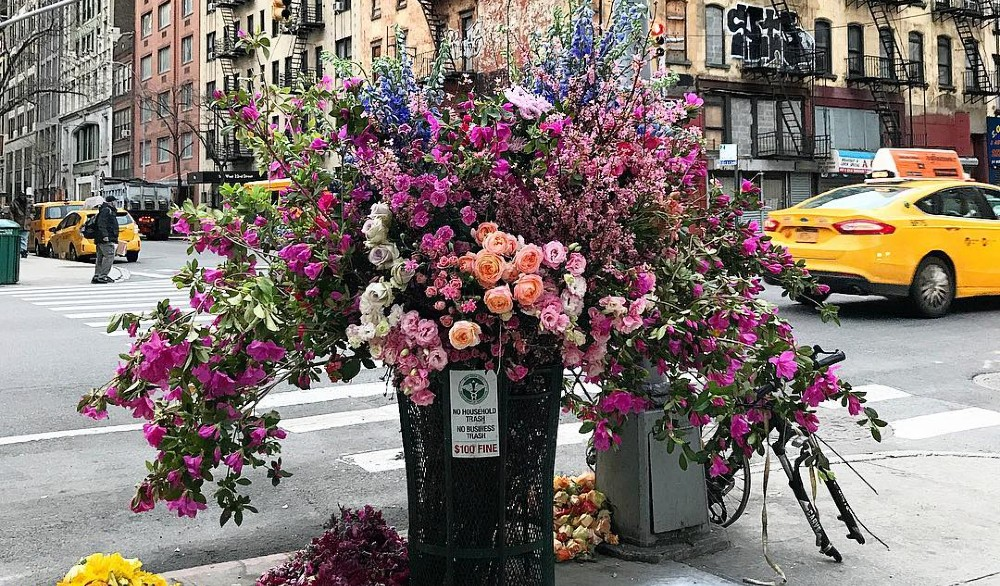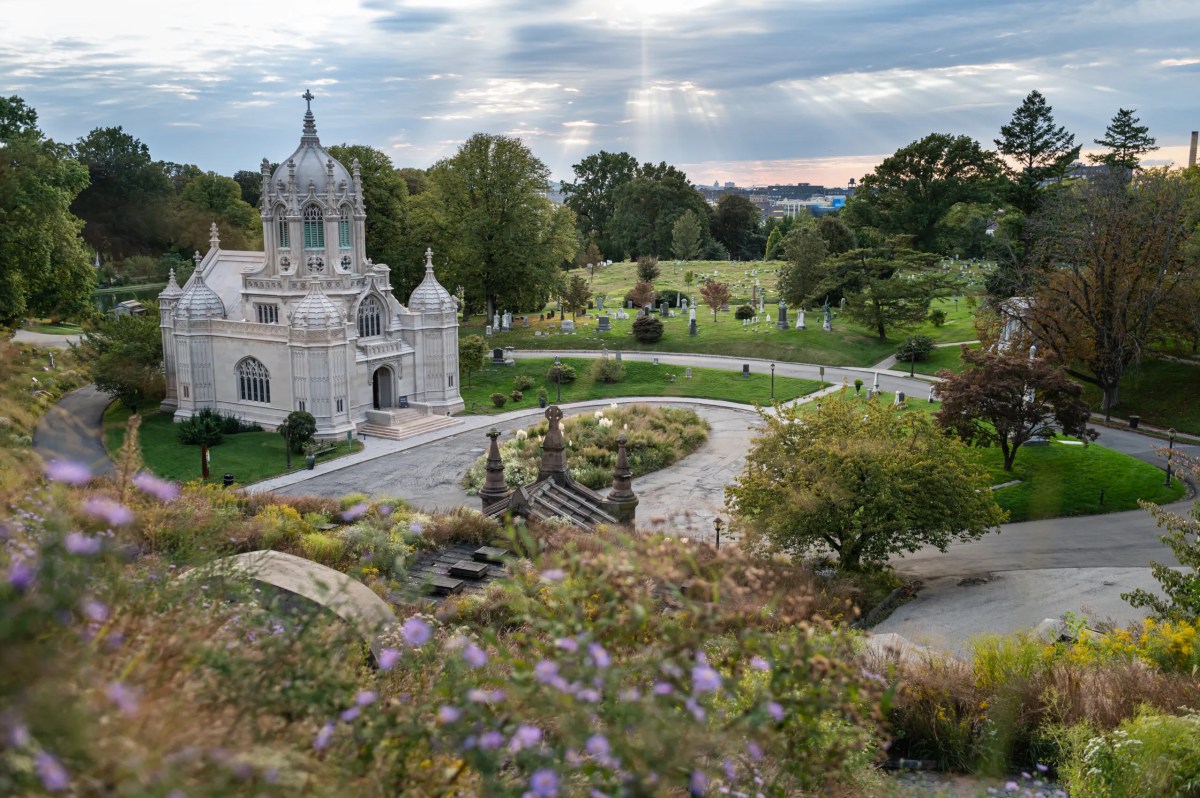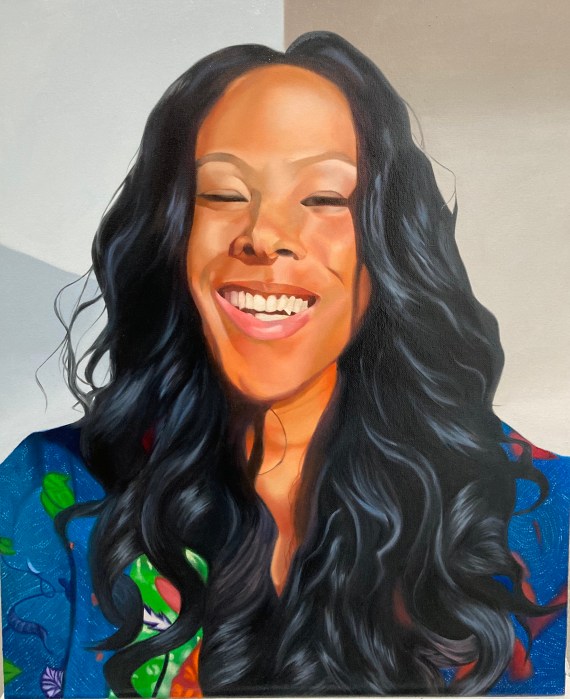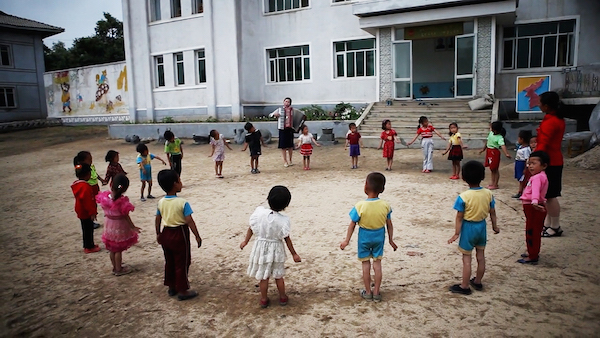
BY SEAN EGAN | Soon-Mi Yoo is tired of the conventional western narrative surrounding North Korea.
She’s had it with the “satiric and, frankly, racist takes” that “use North Korea as kind of a cheap joke,” and the winking, “kind of dishonest,” news coverage, courtesy of outlets like Vice.
“But then, it’s not just Vice,” the filmmaker notes. “It’s even PBS or BBC, these journalists who went into North Korea — they’re thinking of going in with already kind of a set idea. And their brief exchange in North Korea confirms their idea that these people are brainwashed.
“And they react to it really badly. Like emotionally. They hate the place. You know, they hate the place, they hate the people. You know, ‘It’s an awful place.’ And I say, like, ‘I kind of know that already.’ Like, I’ve been told,” she laughs.
“And so, what else can you tell us from your experience, or your endeavor, that’s more than this surface reaction that anybody can have. So I felt a little bit responsible.”
This sense of responsibility led to “Songs From The North.” The Cambridge, Mass.-based Korean filmmaker’s first feature length work is an unconventional and deeply personal essay film determined to bring insight and nuance to the narrative of North Korea and its people. In order to achieve this, Yoo recently travelled to North Korea three times to film, and the footage she shot there comprises a large portion of the movie.
“Initially, my first and second trips, I was invited, quote unquote, or brought in, by somebody who had a very good relationship with the regime,” she discloses. “Her whole thing was that I was there to actually shoot footage for [tourism] promotion,” she discloses, despite the freezing December weather of her first visit. She found it difficult to shoot much beyond the designated tourist sites, though, because minders were watching her.
“At the end of my third trip I realized that no matter how many times I go back, I would only accumulate a tiny bit of the material that I’d be actually satisfied with,” she says, also noting the air of oppression and paranoia that managed to surprise her when faced with it firsthand. “The footage, and my own experience, was very fragmented.”
Despite this, many of her shots are artfully framed, and she managed to capture landscapes not approved by her minders and stolen moments with average North Koreans. In one particularly evocative sequence, Yoo simply lingers on a woman cleaning, as steam rises from a bright pink bowl of hot water nearby. The bowl stands in stark contrast to its bleak surroundings, and the woman is charmingly bashful about being caught on camera. “I find those moments touching,” Yoo says.
Also touching is the contemporary interview footage of Yoo’s father.
“At the time I didn’t know that I was going to use the footage, but I wanted to have it on camera anyway,” she explains. “He offered more than what he had told before in terms of experience. My understanding of his experience deepened,” she notes. This revealing footage provides useful historical context via a fascinating anecdotal lens.
The film’s final component is extensive archival footage. Yoo incorporates illuminating government news broadcasts, as well as sometimes strangely beautiful domestic entertainment — from melodramatic revolutionary films to colorful, flamboyant stage productions praising the regime.
“In a way, North Korean fictions are like documentaries, and so-called North Korean documentaries are more like fiction,” she observes. Though she recognizes how well the regime manipulates the media, and the propagandistic nature of this art, she says she “found them to be, a lot of times, very moving” in their genuine emotion — especially the titular revolutionary songs.
She cites, for instance, a striking scene in the film, where she observed people plodding along in the -26 degree cold while propagandist songs played over loudspeakers, and realized how this “entertainment” could almost function as a coping mechanism.
“At first I thought it was just terrible, you know this kind of propaganda, just — you cannot escape it, right? You know, you’re out in the open and there is this loudspeaker blaring about some ‘great leaders,’ or ‘dear leaders,’ ” she recalls. “It would drive us crazy, you know? And it did drive me crazy. But then I realized, ‘Actually, maybe it’s better than having to just walk in the cold without anything,’ ” she concludes.
“Before, I guess I wasn’t looking and listening carefully enough,” she muses. “And so I reacted similarly to most people, in the sense that I reacted to the message. I reacted to the ridiculous singing about the ‘dear general,’ or whatever,” she continues. “And through this process of making this film, what I really learned was to listen and watch a little more carefully.”
And with “Songs From The North,” Yoo has certainly provided audiences with a rare opportunity to watch and listen more carefully — in order to better actually understand the people of North Korea.
“Songs From The North.” Directed by Soon-Mi Yoo. 72 minutes. Opens Sept. 18 at Anthology Film Archives (32 Second Ave. at Second St.). Yoo will be present at the Sept. 18 & 19 screenings. A program of Yoo’s short work will also run on Sept. 18. Call 212-515-5181 for more info or visit anthologyfilmarchives.org.










